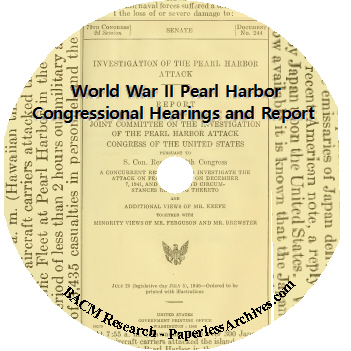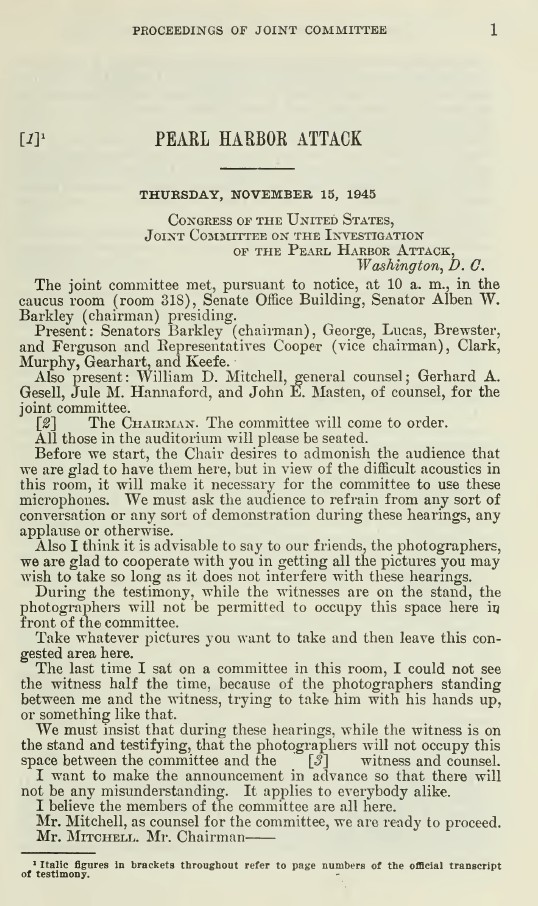|
On August 29, 1945, President Harry Truman released army and navy investigation reports which found commanders in Washington, especially former secretary of state Cordell Hull and army chief of staff General George Marshall, largely responsible for the lack of preparedness at Pearl Harbor. Congress postponed an investigation while the nation was at war.
Germany's surrender on April 8, and the formal surrender of Japan on September 2, 1945, created an opportunity for Congress to act. Senate Majority Leader Alben Barkley was the first to call for action, presenting a Senate resolution on September 6, 1945. He urged the creation of a joint investigatory committee to explore the "contradictions and inconsistencies" within the preceding reports. The Senate unanimously approved Barkley's Concurrent Resolution 27 the same day and the House concurred on September 11, creating the Joint Committee on the Investigation of the Pearl Harbor Attack, commonly known as the Pearl Harbor Committee.
The Committee's goal was to "make a full and complete investigation of the facts relating to the events and circumstances leading up to or following the attack." (S. Con. Res. 27, 79th Cong.) In its investigation, the committee sought to determine whether shortcomings or failures on the U.S. side might have contributed to the disaster and, if so, to suggest changes that might protect the country from another such tragedy in the future. The committee's public hearings ran from November of 1945 through May of 1946, the committee heard testimony in the Senate Caucus Room from 44 people, including top level military commanders such as Admiral Husband Kimmel and General Walter Short, and former ambassador to Japan Joseph Grew and former Secretary of State Cordell Hull.
News media accounts often characterized the committee as politically divided, featuring headlines such as: "Angry Senators Debate on 'Records' of Pearl Harbor," and "GOP Senators Say Democrats Block Pearl Harbor Probe."
This collection is composed of the committee's final report and the hearings transcripts and exhibits, volumes 1-24, 26-37, and volume 39.
|

